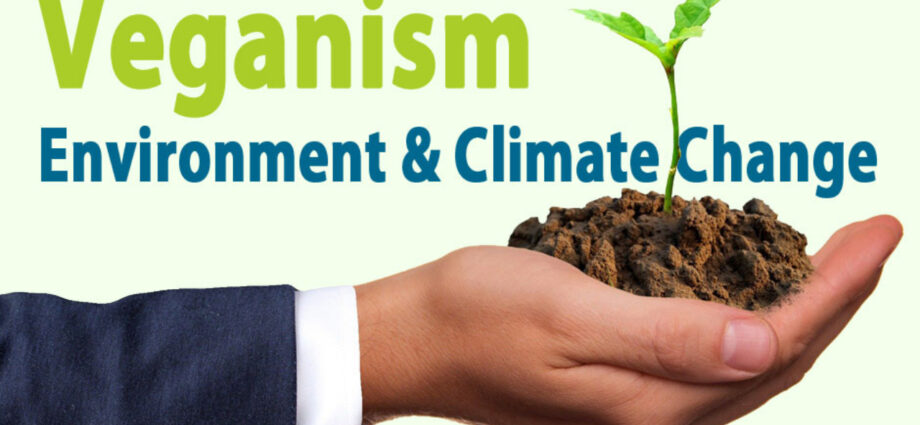Introduction
In recent years, concerns about climate change and its devastating effects on our planet have grown significantly. Scientists and environmental experts have been exploring various strategies to mitigate climate change, and one such approach gaining traction is vegetarianism. By adopting a vegetarian diet, individuals can make a positive impact on the environment and potentially reduce the effects of climate change. This article explores the connection between vegetarianism and climate change, highlighting the environmental benefits and the potential role it can play in preserving our planet’s future.
The Impact of Animal Agriculture on Climate Change
Animal agriculture, particularly the production of meat and dairy products, significantly contributes to climate change. Several key factors contribute to this impact, including deforestation and land use, greenhouse gas emissions, water consumption, and soil degradation.
Deforestation and Land Use
The expansion of animal agriculture often leads to deforestation as forests are cleared to create space for livestock grazing or to grow animal feed crops. Deforestation not only destroys valuable ecosystems but also eliminates carbon sinks that absorb carbon dioxide from the atmosphere. When forests are removed, the stored carbon is released, exacerbating the greenhouse effect and contributing to climate change.
Greenhouse Gas Emissions
Livestock production generates substantial greenhouse gas emissions, primarily methane and nitrous oxide. Methane, released during enteric fermentation and manure management, is a potent greenhouse gas with a warming potential much higher than carbon dioxide. Nitrous oxide is released from manure and fertilizers used to grow animal feed crops. These emissions significantly contribute to the warming of our planet and the intensification of climate change.
Water Consumption
Animal agriculture is a highly water-intensive industry. From watering livestock to irrigating feed crops, a considerable amount of water is required to sustain this industry. In regions where water scarcity is already a significant concern, such as California, this added pressure on water resources can further exacerbate the problem. By adopting a vegetarian diet, individuals can significantly reduce their water footprint and contribute to water conservation efforts.
Soil Degradation
Intensive animal agriculture practices, such as overgrazing, can lead to soil erosion and degradation. Healthy soils act as carbon sinks, storing carbon and preventing its release into the atmosphere. When soils degrade, carbon is released, contributing to greenhouse gas emissions. By reducing the demand for meat and animal products, individuals can indirectly help preserve soil health and mitigate climate change.
Benefits of Vegetarianism in Reducing Climate Change
Lower Greenhouse Gas Emissions
A shift towards vegetarianism can lead to a substantial reduction in greenhouse gas emissions. By eliminating or reducing the consumption of meat and dairy products, individuals can help decrease methane and nitrous oxide emissions associated with livestock production. This reduction in emissions can contribute to the overall efforts of mitigating climate change and its impacts.
Conservation of Natural Resources
Adopting a vegetarian diet can also help conserve natural resources. As mentioned earlier, animal agriculture requires vast amounts of land, water, and feed crops. By choosing plant-based alternatives, individuals can reduce the pressure on these resources and promote their sustainable use. This shift can help safeguard ecosystems, preserve biodiversity, and alleviate the strain on our planet’s limited resources.
Reduced Deforestation
By reducing the demand for meat, individuals can indirectly contribute to reduced deforestation. As the demand for animal products decreases, there will be less pressure to clear forests for livestock grazing or feed crop production. This shift can help protect valuable forest ecosystems, retain carbon sinks, and mitigate climate change.
Mitigating Water Scarcity
Water scarcity is a growing concern in many parts of the world. Animal agriculture, with its high water demands, exacerbates this issue. By adopting a vegetarian diet, individuals can reduce their water footprint and contribute to water conservation efforts. This change in dietary choices can help alleviate water scarcity and ensure the availability of this vital resource for future generations.
Preserving Soil Health
Intensive animal agriculture practices can lead to soil degradation, reducing its capacity to store carbon and contribute to climate change. By choosing vegetarian options, individuals can indirectly support sustainable agriculture practices that promote soil health. This shift can help preserve the integrity of our soils, promote carbon sequestration, and mitigate the impacts of climate change.
Health Benefits of Vegetarianism
Apart from its positive environmental impact, vegetarianism offers numerous health benefits. Plant-based diets, when well-balanced and nutritionally adequate, can provide essential nutrients, vitamins, and minerals. They are often lower in saturated fats and cholesterol, which can contribute to improved heart health and a reduced risk of certain diseases. By adopting a vegetarian diet, individuals can not only contribute to climate change mitigation but also improve their overall well-being.
Conclusion
The connection between vegetarianism and climate change is becoming increasingly evident. By choosing to adopt a vegetarian diet, individuals can significantly reduce their carbon footprint, conserve natural resources, mitigate deforestation, alleviate water scarcity, and promote soil health. Furthermore, vegetarianism offers significant health benefits, making it a win-win for both individuals and the planet. Through collective efforts, we can create a sustainable future and combat the challenges posed by climate change.











